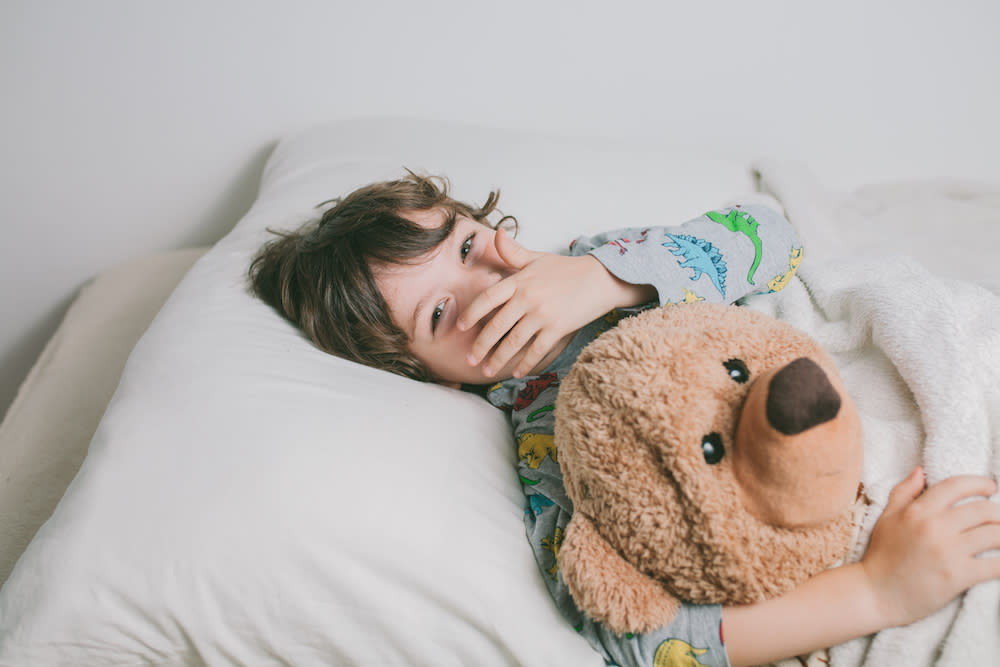Dad's Trick for How to Tell If His Kid Was Fake Sleeping Turns Into a Share-Fest About Lying

March 28, 2019
As both rookie and veteran parents know well, getting little ones to sleep is tricky business. No matter the method you're using to try to score some shut-eye for you and your child, you're probably always willing to lend an ear to a friend, pediatrician or total stranger offering up advice on the matter. But what if someone suggested that you tell a flat-out lie to your child to find out whether or not he or she is truly sleeping?
That's what one Reddit user explained in a post titled "A smart way to tell if your kid's asleep," which immediately went viral—his first posting ever to boot! In the post, he shares the story of a man who tells his child, "You beep when you sleep." As a result, the child becomes convinced that he actually makes a beeping noise upon falling asleep. The following night, when the dad peeks into his child's room to check whether or not he's asleep, he hears "beep, beep, beep" coming from his kiddo's room. The post finishes with a drumroll-worthy, "now his kid makes beep noises when he fake sleeps."
As if the post itself wasn't comically clever enough, perhaps the best part of all is the onslaught of parents (many of whom are dads) who chimed in to share their own brilliant methods of unraveling their child's lies. One user shared how his daughter covers her ears when she tries to lie because he told her they turn red when she does. Another commenter responded that he too tried the ear-covering technique with his son, but the boy quickly realized it was all a hoax. "That worked well for us until the one time our son slipped up and didn't cover his ears and realized that we didn't know he had lied. Then we had to explain why we told him a lie in order to be able to detect his lies," he wrote.
The thread continues to unfold with many more parents sharing their tried-and-true measures of catching their children in a lie, which is purely entertaining in its own right. And there's no doubt about it—kids are known for telling giant whoppers. But, as it turns out, lying is not always a bad thing. In fact, a University of Toronto study found that kiddos who bend the rules, even ever so slightly, score a cognitive advantage over tots who tell the truth.
RELATED: Tips to Make Bedtime Easier
So what should you really do if you catch your child in a lie? It's not a bad idea to stay calm and avoid setting her up to "get caught." Even if your child finishes that forbidden bag of junk food before dinner and then denies it, avoid asking, "Did you eat all the potato chips?" That only calls her out and raises her anxiety. As this Parents article points out, it's better to say, "I see you wanted to have a snack. Please ask next time. If it's not too close to dinner, you'll be able to have a few. Now let's wash up."
Once your child is a bit older, ideally by age 7 and 8, they will become better at grasping the understanding of white lies, or lies that are harmless, versus ones that could get them into trouble. Although you should still make it clear white lies shouldn't be used too frequently even if they are little!

